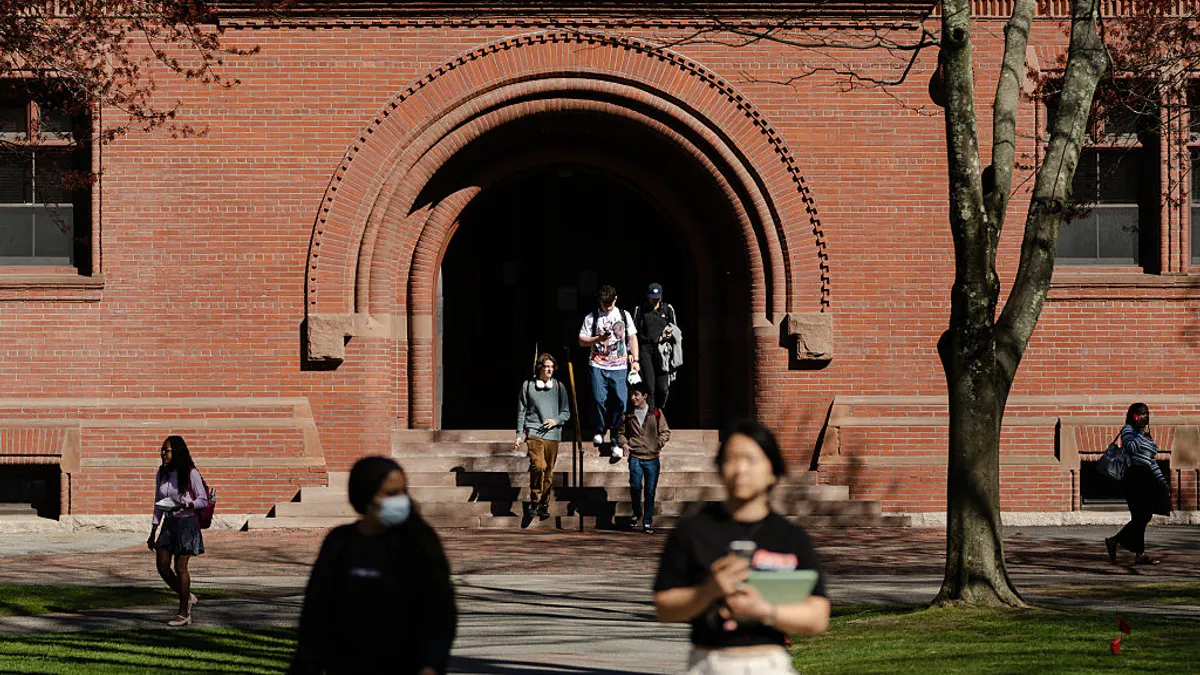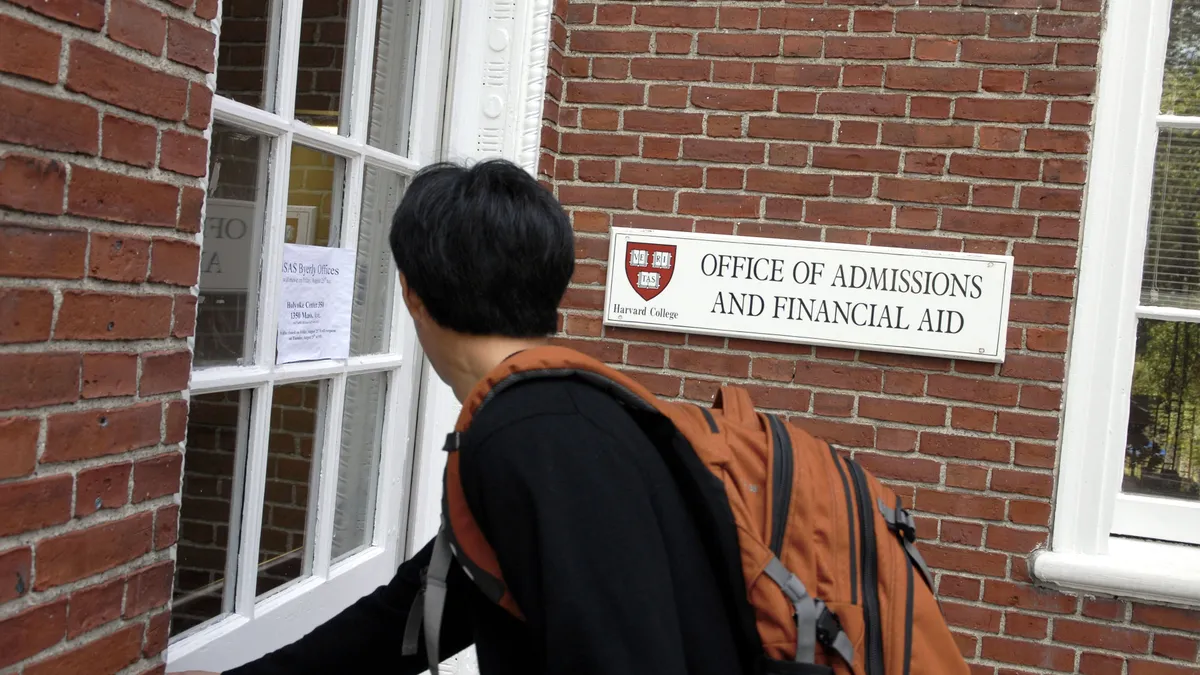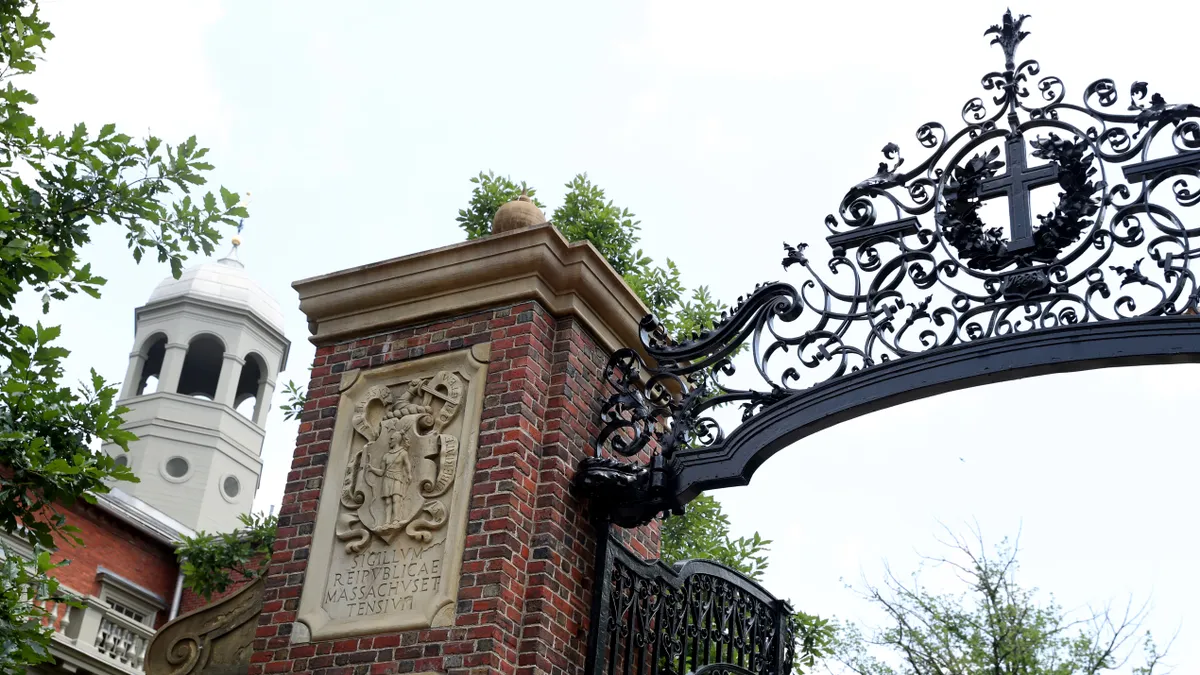Dive Brief:
- The U.S. Department of Education on Friday gave Harvard University 20 days to provide “documents and information” on its undergraduate admissions process as part of an Office of Civil Rights investigation, threatening its access to federal student aid if it did not comply.
- The department alleged Harvard has refused “OCR’s repeated requests for data,” but it did not publicly specify what documentation it is requiring of the Ivy League institution. Neither the Education Department nor Harvard responded to questions on Monday.
- In a separate Friday action, the Education Department also put Harvard on a financial watch list, arguing that the university's finances have become so volatile as to require increased federal oversight. The department cited the Trump administration’s own actions against Harvard as driving forces destabilizing the university’s ability to meet its obligations.
Dive Insight:
Since the end of March, the Trump administration has enacted a far-reaching campaign of federal coercion as it sought to bring Harvard to heel.
OCR is now investigating Harvard’s undergraduate admissions over unspecified reports that it “continues to engage in unlawful racial discrimination” in its admissions, the Education Department said Friday.
“The Department has both the right and responsibility to verify Harvard’s compliance with federal civil rights laws,” U.S. Secretary of Education Linda McMahon said in a statement. “For all their claims, they refuse to provide evidence necessary for the Department to make that determination.”
McMahon cited the 2023 U.S. Supreme Court ruling overturning decades of precedent on race-conscious admissions practices as evidence of Harvard’s track record of using “extreme racial preferencing.”
The Education Department also placed Harvard on its Heightened Cash Monitoring list, a designation historically reserved for colleges considered financially at risk, such as those facing the threat of closure.
Under HCM status, a college must pay for its students’ federal financial aid out of pocket before drawing down funds from the Office of Federal Student Aid.
The Education Department can place colleges on HCM for a number of compliance issues, from late or missing audits to accreditation issues to concerns about a college’s administrative capabilities.
In Harvard’s case, the department alleged it had concerns over the university’s “financial responsibility.”
The university — the wealthiest higher ed institution in the country — has been open about the financial strain it has faced amid the Trump administration’s repeated and escalating attacks on its federal funding and governance.
The U.S. Department of Commerce, for example, is reviewing Harvard patents that stem from federally funded research grants. The inquiry lays the groundwork for the administration to attempt to revoke the university’s sole ownership of its intellectual property, which could stymie its revenue and assets.
Other challenges have been less direct. The U.S. Department of Health and Human Services in June alleged that Harvard violated federal civil rights laws over its handling of campus antisemitism, further threatening the university’s access to federal funding.
As it weathers the administration's attacks, Harvard has conducted layoffs and frozen hiring and salaries since spring. The university's president also announced he would take a pay cut this fiscal year.
The Education Department on Friday used those announcements as evidence that Harvard is in need of increased federal oversight.
The HHS finding, as well as Harvard’s alleged noncompliance with OCR’s request, puts the university at further risk of losing access to all federal student aid funding, the department said.
Additionally, Harvard signaled its intent to sell over $1 billion in bonds earlier this year. The department said that the extra debt is “likely to have a significant adverse impact on the financial condition of Harvard.”
“Taking on the additional debt may make it materially more difficult for Harvard to satisfy any liabilities with the Department in the event that it loses access to federal funding,” it said.
The department will require Harvard to post a $36 million letter of credit within 45 days. It did not publicly give criteria Harvard would need to fulfill in order to be removed from HCM.
While Harvard is on HCM, its students will still have access to federal funding, according to the Education Department.





























